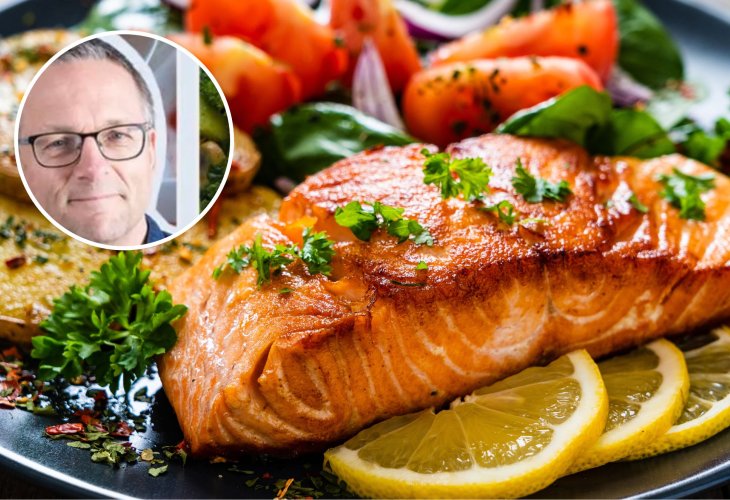Do You Feel Hungry Even After Eating? A British Doctor Warns Against a Common Mistake
A British doctor advocating for the Mediterranean diet warns against a mistake many make that leads to snacking between and after meals.

Dr. Michael Mosley is a well-known figure in the UK when it comes to nutrition and diets.
With numerous books and his own blog where he shares scientific and professional articles, Dr. Mosley has recently highlighted what he believes is the real reason behind lingering hunger, even after a hearty meal. In one of his latest articles published in the UK's 'Daily Mirror,' he reveals this insight.
"Eating balanced meals that include all major food groups isn't always easy," he writes, "and it's tempting to load up on carbs at the expense of proteins and vegetables. Such poor nutrition can lead to 'overeating' issues, as you feel the urge to keep eating even after loosening a button. Too many carbohydrates leave us lacking essential nutrients, which leads to unnecessary snacking."
Dr. Mosley, a proponent of the Mediterranean diet, emphasizes that "even if you feel you're eating enough, if your diet lacks the essential nutrients, you'll find yourself hungrier after or between meals. If your intake is low in protein, fat, or dietary fiber, you will often feel hungry because your body craves what it truly needs. That's why we recommend the Mediterranean diet, rich in fish, legumes, nuts, seeds, vegetables, and olive oil. By adding plenty of non-starchy vegetables to your meals, you'll feel fuller thanks to the vitamins and minerals."
He also points out that it's not just nutritional gaps that lead to snacking, but insufficient sleep, as well as hormones like leptin and ghrelin that regulate satiety, and a lack of water (which signals hunger to the brain when actually thirsty).

